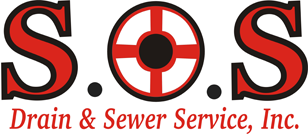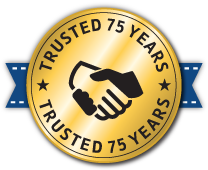Grease buildup is a common cause of sewer line blockages and can lead to costly repairs for homeowners. Sewer lines are responsible for carrying wastewater from homes to the main sewer system, and they can easily become clogged with grease if proper precautions are not taken. This type of blockage can result in sewage backups, foul odors, and potential health hazards.
In this article, we will discuss the causes and effects of grease buildup in sewer lines, as well as ways to prevent and remove it. We will also explore the importance of regular maintenance and proper disposal of fats, oils, and grease (FOGs) to avoid major blockages and keep your sewer lines functioning properly. By understanding the impact of grease buildup on your home’s plumbing system, you can take proactive measures to avoid potential issues and save yourself from costly repairs.
What is Grease Buildup and How Does it Happen?
Grease buildup is a common problem that occurs when fats, oils, and grease (FOGs) are poured down drains and solidify in sewer lines. These substances may seem harmless when initially disposed of, but as they make their way through the plumbing system, they can harden and stick to the walls of pipes. Over time, this accumulation can lead to a thick layer of grease buildup, obstructing the flow of wastewater and causing blockages in sewer lines.
FOGs mainly come from cooking and food preparation activities in homes. When hot oil, butter, or other types of fats are poured down drains, they eventually cool and solidify as they move through the pipes. These substances can also accumulate in pipes from dishwashers and garbage disposals that are not properly maintained. Additionally, inadequate cleaning of grease traps in commercial buildings can contribute to the amount of FOGs entering sewer lines.
Plus, FOGs are not the only culprits of grease buildup in sewer lines. Dirt, hair, and other debris can also contribute to blockages when combined with FOGs. As these substances stick to the walls of pipes and build up over time, they can create a stubborn clog that requires professional intervention.
Effects of Grease Buildup on Sewer Lines
The buildup of grease in sewer lines can have several negative effects on the plumbing system of a home. One of the most common issues is slow or blocked drains, which can cause water backup and potential health hazards due to sewage contamination. This can lead to foul odors and an unsanitary environment for homeowners.
Grease buildup can also put strain on the entire sewer system, causing it to work harder and potentially leading to sewage backups in nearby homes. In severe cases, grease buildup can cause major blockages that require expensive repairs or even replacement of pipes.
Moreover, the presence of FOGs in sewer lines can also attract insects and rodents looking for a food source. This can lead to infestations in homes, creating further problems beyond the plumbing system.
Prevention and Removal of Grease Buildup
Preventing and removing grease buildup is essential for maintaining a healthy plumbing system. The best way to prevent this issue is to avoid pouring FOGs down drains and properly dispose of them instead. This can include using strainers in sinks to catch food particles and grease, wiping excess grease from pots and pans before washing them, and regularly cleaning out dishwasher filters and garbage disposals.
If you do encounter a blockage caused by grease buildup, there are several methods for removal. One option is using hot water and dish soap to break down the hardened substances. Alternatively, enzyme-based drain cleaners can also help dissolve FOGs without damaging pipes. For more stubborn blockages, professional drain cleaners may use hydro jetting or mechanical tools to clear out the buildup.
Plus, regular maintenance is crucial for preventing grease buildup in sewer lines. This can include professional cleaning of drains and grease traps, as well as inspections to identify and address any potential issues before they become major problems.
Importance of Regular Maintenance and Proper Disposal
Regular maintenance of your plumbing system is crucial for preventing grease buildup in sewer lines. This can include annual inspections by a professional drain cleaner to check for any potential issues and clean out any accumulated FOGs. Additionally, it is important to properly dispose of fats, oils, and grease to avoid contributing to the problem.
Many cities have regulations in place for the proper disposal of FOGs, with designated drop-off locations or curbside pickup services available. It is important to follow these guidelines and not pour FOGs down drains or into storm drains, as this can lead to environmental damage and potential fines.
By following proper disposal methods and keeping up with regular maintenance, homeowners can minimize the risk of grease buildup in their sewer lines and avoid costly repairs. Educating yourself and your family on the impact of FOGs on plumbing systems is also crucial for preventing future blockages.
Why is Grease Buildup a Concern for Homeowners?
Grease buildup is a major concern for homeowners because it can lead to costly repairs, health hazards, and unpleasant odors. Ignoring the issue can result in sewage backups and potential damage to a home’s plumbing system.
Additionally, the presence of FOGs in sewer lines can attract insects and rodents, creating further issues beyond the plumbing system. This can lead to infestations in homes and additional costs for pest control.
Moreover, grease buildup is a preventable issue that can be avoided by properly disposing of fats, oils, and grease and regularly maintaining the plumbing system. By understanding the impact of FOGs on sewer lines, homeowners can take proactive measures to prevent grease buildup and ensure the overall health and functionality of their plumbing system.
How to Educate Others on the Impact of Grease Buildup
One way to educate others on the impact of grease buildup is by sharing this information with friends, family, and neighbors. Many people may not be aware of the potential consequences of pouring FOGs down drains, and by spreading awareness, we can help prevent this issue from occurring.
Additionally, schools and community organizations can also play a role in educating others about the impact of grease buildup on sewer lines and the importance of proper disposal methods. This can include hosting workshops or informational sessions to raise awareness and provide practical tips for preventing grease buildup.
Another effective way to educate others is by utilizing social media platforms and other online resources. By sharing articles, videos, or infographics about the issue, we can reach a larger audience and potentially inspire others to take action.
Furthermore, it is important for local government agencies to also play a role in educating citizens. This can include implementing public awareness campaigns and providing resources for proper disposal of FOGs. By working together, we can ensure that everyone understands the impact of grease buildup and takes steps to prevent it in their own homes and communities.
Is A Professional Plumber Needed?
In many cases, a professional drain cleaner is needed to address grease buildup and other plumbing issues. While some minor blockages can be resolved with simple methods such as hot water and dish soap, more severe cases may require specialized equipment and expertise.
Additionally, regular maintenance of the plumbing system is important for preventing grease buildup, and this should be done by a professional drain cleaner. They have the knowledge and tools to thoroughly clean out drains and grease traps, as well as identify any potential issues that may lead to larger problems in the future.
Moreover, attempting to address plumbing issues on your own can potentially worsen the problem or cause damage to pipes. Professional drain cleaners are trained and experienced in handling these types of situations safely and effectively.
In the case of a severe blockage or damage to sewer lines, it is especially important to seek the help of a professional drain cleaner. They can use methods such as hydro jetting or mechanical tools to clear out the buildup without causing further damage.
Tips for Preventing Grease Buildup
Some simple tips for preventing grease buildup include:
- Avoid pouring FOGs down drains and instead, properly dispose of them.
- Wipe greasy dishes and cookware with paper towels before washing them to remove excess grease.
- Regularly clean out grease traps and drains, especially in commercial kitchens or households that produce a lot of greasy waste.
- Educate family members and roommates on the impact of FOGs and the importance of proper disposal methods.
- Consider using biodegradable soaps and detergents, as they are less likely to contribute to grease buildup.
- Install strainers in sinks to catch food particles and other debris that can contribute to blockages.
- Regularly schedule professional plumbing inspections and maintenance to catch any potential issues early on and prevent grease buildup.
By following these tips and taking proactive measures, homeowners can significantly reduce the risk of grease buildup in their sewer lines. Additionally, by educating others and working together as a community, we can help minimize the impact of FOGs on our plumbing systems and environment.
Contact S.O.S Drain & Sewer Services for all your Sewer Line Needs
S.O.S Drain & Sewer Services is a trusted and family owned company that has been providing top-notch sewer and drain cleaning services in Minneapolis, St. Paul and the entire Twin Cities area since 1941. Our highly trained technicians are equipped with the latest techniques and equipment to detect and fix any issues related to your sewer lines.
We offer a range of services including roof drain cleaning, storm drain cleaning, clogged air conditioner condensation line cleaning and more. Our upfront pricing and affordable services aim to save our commercial clients from expensive pipe and property repairs. With a high customer retention rate due to our quality services, we are also known as a trusted second opinion service provider.
Contact us today for your free estimate or book an on-site consultation. We are available 24/7 and serve Minneapolis, St. Paul, and all the surrounding areas in Minnesota. Call now at (612) 475-0455 or email us at [email protected] and let us be the company you trust for all your drain and sewer needs.
FAQs
How does pouring grease down the drain lead to blockages in sewer pipes?
Pouring grease, cooking oil, or food waste down your drain can solidify and form grease plugs, leading to clogged drain and blockages in the sewer pipes. These substances accumulate over time, restricting flow and potentially causing significant blockages in the main sewer line.
What is the impact of grease on the sanitary sewer system?
Grease and oils poured down the drain do not break down easily and can adhere to the walls of sewer pipes. Over time, this buildup can constrict flow and cause backups in the sanitary sewer system, leading to environmental and public health issues.
Can a garbage disposal prevent grease-related sewer blockages?
While a garbage disposal helps grind up food scraps, it does not prevent grease from entering the sewer systems. Grease should never be pour grease into a garbage disposal as it can solidify further down the drain line, contributing to blockages and requiring extensive cleaning or repairs.
Why is it important to use a grease trap in kitchen drains?
Installing a grease trap is crucial for capturing grease, cooking oil, and food waste before they enter the drain line. This device helps prevent the accumulation of grease in sewer pipes, protecting the main sewer line from blockages and maintaining the efficiency of the sewer systems.








